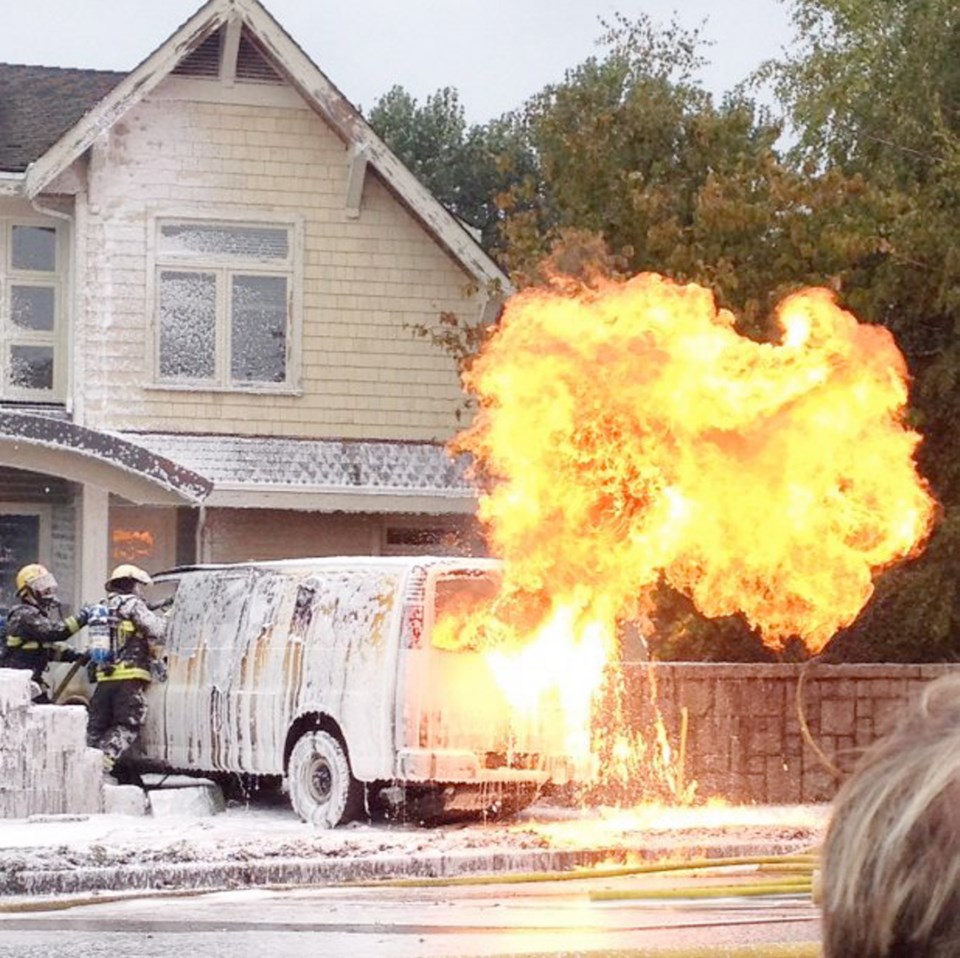VANCOUVER — As driving costs soar, police are seeing a wave of black-market fuel thieves plundering Metro Vancouver gas stations in gutted vans altered to become “mobile Molotov cocktails.”
Vancouver police impounded two vans this week sloshing with massive containers of concealed gas, catching young drivers red-handed with hundreds of stolen credit cards.
The cases, both occurring in south-central Vancouver, closely resemble a third incident in the same area early in October. In that case, fumes from hundreds of litres of fuel stowed in a hollowed-out van caused the vehicle to ignite, leaving two Coquitlam men, ages 19 and 25, hospitalized with “life-altering” burns.
Vancouver Const. Brian Montague said police believe crooks ranging from low-level freelancers to organized crime members are involved in a network of black-market gas suppliers. The profits can be big, Montague said, and the risks to the public enormous.
The scheme works like this:
Thieves steal credit cards and load data onto phoney magnetic pay-cards. Large vehicles are gutted and rigged to hold makeshift containers — the one impounded in Vancouver on Tuesday had a 1,000-litre tank — so that thieves can steal gas while appearing to fill their engine tanks.
Drivers move quickly, filling up multiple times at a single station, about $50 per pump so as not to trigger suspicion, before moving on.
Within a few hours, vans filled to the brim with stolen fuel drive into warehouses run by criminal wholesalers, tucked away in industrial areas. Gas is sold at 50 per cent off to wholesalers, who then sell from jerry cans to individuals, or to shady business operators with fleets of vehicles to fuel. Thieves can also sell smaller quantities of gas on the Internet or to networks of friends.
“This could be very lucrative, depending on your network, your customer base and your market supply and demand,” Montague said Wednesday.
“You could compare it to a drug dealer. But as opposed to a drug dealer’s supply, there is no real cost to obtaining the gas product, in these cases. So if you are selling it for 60 cents on the litre, from a 1,000-litre tank, there is $600 profit, untaxed cash, in a few hours.”
The driving routes in recent cases in Vancouver seem to suggest a wholesaler in Richmond could have been the final destination for stolen fuel. That is allegedly what happened in a 2010 case.
Montague said the case weeks ago, in which a van exploded into flames on Oak Street near 53rd Avenue, illustrates the danger.
“Two people were very badly burned, and it wasn’t a result of an accident,” Montague said. “That van was fully engulfed just driving down the street. So obviously, fumes can build up, and it doesn’t take much to ignite those vapours.”



